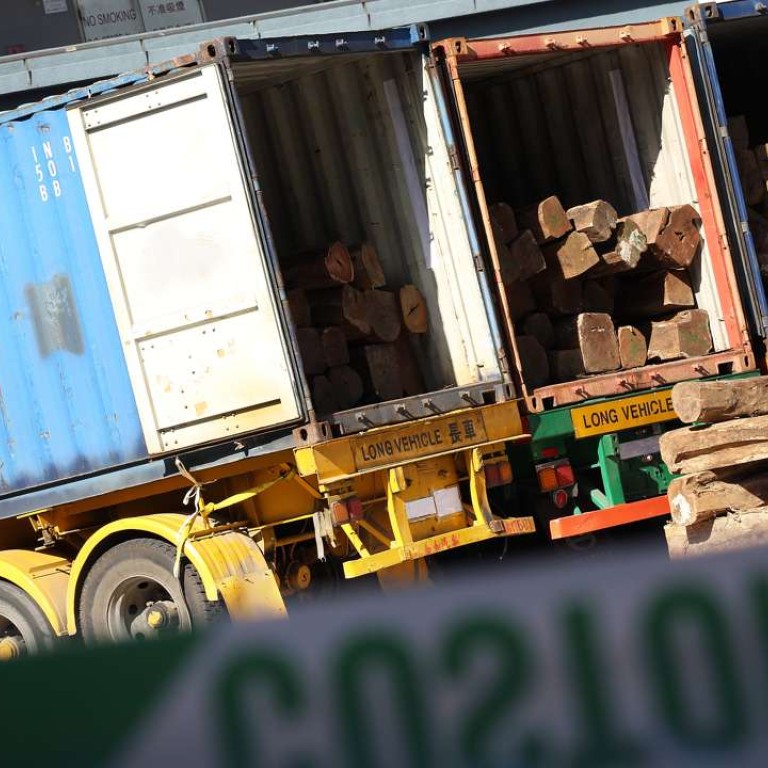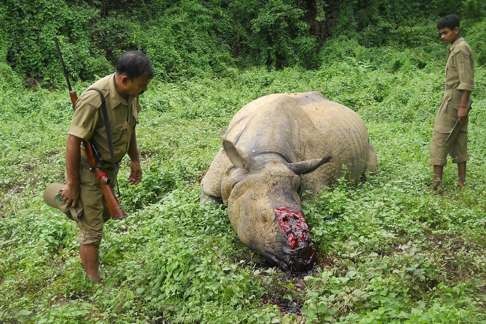
Hong Kong must not be the weak link in the global effort to stop wildlife trafficking
John Sellar says the city’s role as a key transit point and destination for smuggled wildlife obliges it to step up its enforcement and toughen up penalties to deter criminals
Hong Kong continues to be exploited by animal and plant contraband shippers, smugglers, couriers and illicit traders, and more and more people are beginning to ask: Why? What’s being done to deter, detect and penalise such crime?
Hong Kong government urged to do more to curb wildlife trafficking after UN passes resolution
The illicit trafficking of fauna and flora is bringing many of the world’s most endangered species closer to extinction. Wildlife crime today is sophisticated and highly organised, and Hong Kong plays a role in it. It is not just animals and plants that suffer from these activities. Across the globe, criminals are: exploiting persons living on, or below, the poverty line by involving them in poaching and illegal harvesting; corrupting officials, and sometimes the judiciary, through bribery, threats and extortion; and killing or seriously injuring those whose daily task is to guard fauna, flora and their habitats.
While Hong Kong may, to an extent, escape from the very worst of these impacts, it nonetheless plays an important role as both a transit point and destination for the contraband. And the variety of it that arrives or passes through the region is almost mind-boggling. In recent years, among the items or species seized by customs, one could list sandalwood, humphead wrasse, shark fin, totoaba fish maw, seahorses, pangolin, elephant ivory and rhinoceros horn.
Smugglers fail to slip past Hong Kong customs officials as their live eels and shark fins are seized at airport
To be sure, Hong Kong does have a proud record of detecting contraband; this has been recognised by the award of a Convention on International Trade in Endangered Species certificate of commendation. What seems odd, though, is that instead of significant police involvement, as might be the case for narcotics, firearms or human smuggling, the agency in Hong Kong which follows up such cases is the Agriculture, Fisheries and Conservation Department. The fact that the department is a regulatory body, not staffed by trained investigators or detectives, is something that risks being exploited by criminals. It also sends out a potentially negative message when magistrates sit in judgment upon smugglers. After all, if a police officer or a public prosecutor is standing in front of the judiciary, it is immediately obvious that a criminal case is about to be heard. Does the appearance of a conservation officer have the same impact? Probably not.

‘More lucrative than cocaine’: Hong Kong retailers cashing in on endangered fish maw, Greenpeace says
If wildlife criminals are hunted down, on mainland China, by personnel of the public and forest security bureaus, then why is it so rare for the Hong Kong police to engage in such matters? If judges on the mainland are empowered to sentence the worst wildlife crime offenders to life imprisonment, why are Hong Kong magistrates limited to a maximum jail penalty of two years? It seems that some in the judiciary may not appreciate the seriousness of wildlife trafficking or the very considerable profit that it brings to organised crime networks. A kilogramme of rhino horn attracts US$70,000 on the black market; considerably more than one would get if smuggling gold, diamonds, heroin or cocaine. In one case we heard, someone in possession of HK$240,000 worth of wool products from the highly-endangered Tibetan antelope was fined a mere HK$5,000.

Hong Kong’s ivory traders don’t deserve any compensation
Recent considerations by the government to ban domestic trade in ivory demonstrate that it is not ignoring these problems. But, if there is a whole field of criminal racehorses running around or through Hong Kong, shutting just one stable door isn’t going to be the answer. In a development that offers hope, government officials are known to have met recently with the UN Office on Drugs and Crime, to discuss future collaboration. I hope civil society will continue to urge amendments to legislation.
This problem isn’t going to disappear. Hong Kong’s geographical and commercial position, as one of the world’s leading trading and shipping hubs, and particularly its links with mainland China, inevitably mean it will remain attractive to criminals. What needs to be done is to reduce the potential exploitation opportunities for them to the absolute minimum. And this should be combined with enforcement, detection, investigation, prosecution and judicial responses which offer the maximum deterrence.
John M Sellar is an independent anti-smuggling, fraud, and organised crime consultant. This article is based on a talk given at the seminar “Wildlife Crime – What more can Hong Kong do?” held last month
